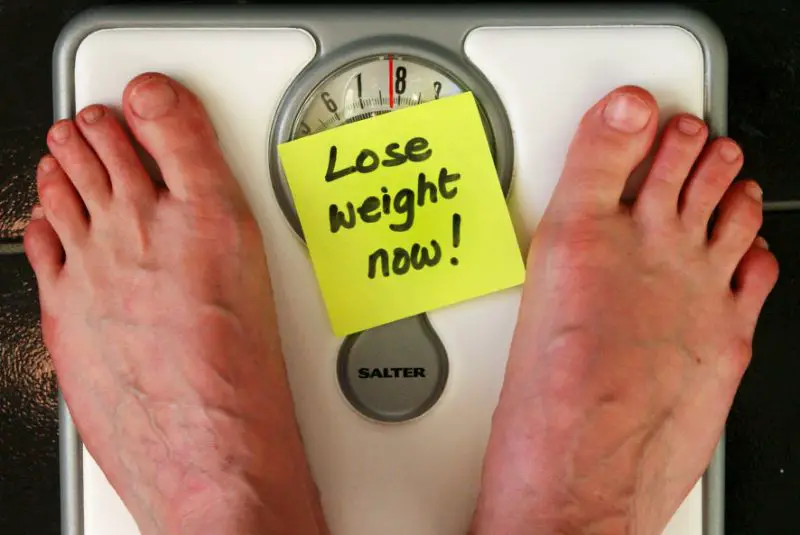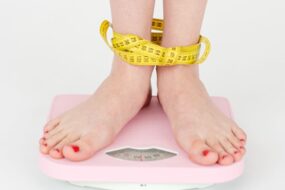
Losing weight can be challenging, but you can reach your goals with the right mindset, tools, and support. This comprehensive guide will provide tips and strategies to start your weight loss journey and achieve long-term success.
Table of Contents (click to expand)
Introduction
Starting a weight loss journey can feel overwhelming, especially if you have tried and failed in the past. However, losing weight is not only about looking good but also an essential step to better health.
According to the National Institute of Diabetes and Digestive and Kidney Diseases (NIDDK), losing even a small amount of weight can improve your blood pressure, cholesterol, and blood sugar levels, reducing your risk of heart disease, diabetes, and other health conditions.
Despite the numerous benefits of losing weight, many people struggle with their weight loss efforts. One of the main reasons for this is setting unrealistic goals or relying on crash diets that are not sustainable. To start your weight and healthy fat loss journey on the right foot, you need realistic goals, a solid plan, and a willingness to make lifestyle changes.
Related: What is the Ice Hack for Weight Loss
Set Goals and Make a Plan
The first step to successful weight loss is setting realistic goals and creating a plan that works for you. Selecting a specific and measurable weight loss goal, such as losing 10 pounds in three months, can help you stay motivated and track your progress. However, it’s crucial to set realistic expectations and avoid setting too ambitious or unattainable goals.
To create a plan that works for you, consider your current habits, lifestyle, and availability. Identify things you enjoy that might pose challenges in your weight loss journey, such as travel schedules or work obligations, and find ways to overcome them.
Tracking physical activity and food intake can help you identify areas to change. Keeping a food diary can also be an effective tool for managing your calorie intake and identifying bad habits, such as eating sugary foods or high-calorie items.
Nutrition
Healthy eating is crucial for successful weight loss. To lose weight, you need to consume fewer calories than you burn. A calorie deficit of 500-1000 calories per day can help you lose how much weight, 1-2 pounds per week. However, ensuring you’re still getting enough nutrients and not sacrificing your health is essential.
Aim to include more vegetables, fresh fruits, healthy fats, and whole grains in your diet. These nutrient-dense foods can help you feel fuller for longer, reducing your overall calorie intake. Avoid or limit sugary foods, processed snacks, and high-calorie drinks, which provide empty calories and can sabotage your weight loss efforts.
Incorporating more healthy foods into your diet is critical to starting your weight loss journey. To achieve this, it’s recommended that you focus on whole foods like fruits, vegetables, lean proteins, and whole grains. These nutrient-dense foods deliver essential vitamins and minerals that your body needs to function correctly. Additionally, eating a healthy diet can give you the energy and stamina you need to maintain an active lifestyle that will help you lose weight.
Exercise
In addition to reducing your calorie intake, exercise is essential for weight loss. Regular physical activity can help you burn more calories, improve your body composition, and boost your metabolism. Aim for at least 150 minutes of moderate or 75 minutes of vigorous-intensity exercise per week.
Find types of exercise that you enjoy, such as walking, swimming, or dancing, and incorporate them into your routine. Creating a workout plan and setting specific exercise goals can help you stay on track and motivated. Don’t forget to track your progress and celebrate small victories along the way.
Related: How to Make Turmeric Tea for Weight Loss: A Comprehensive Guide
Lifestyle Changes
Making healthy lifestyle changes can help you achieve long-term weight loss success. Sleep and stress management are two critical factors affecting your weight loss journey. Aim for at least seven hours of quality sleep per night and find ways to manage stress, such as meditation, yoga, or deep breathing exercises.
Drinking enough water and maintaining a healthy body temperature can also support weight loss efforts. Aim to drink at least eight glasses of water daily and adjust your clothing or environment to get enough sleep and maintain a comfortable body temperature.
Supplements and Additional Tools
Although weight loss supplements and other tools can be helpful, using them judiciously and cautiously is essential. The effectiveness and safety of many weight loss aids are still unproven, and some may even have harmful side effects.
Before considering supplements or other weight management tools, consult your healthcare professional or registered dietitian to determine if they’re right for you.
Staying on Track and Avoiding Plateaus
Weight loss plateaus are a common occurrence and can be frustrating. To overcome a weight gain plateau, try changing your exercise routine, adjusting your calorie intake, or seeking professional help. Celebrating small victories, such as fitting into a smaller size, can also help you stay motivated and on track.
Tracking your progress is crucial in staying on track with your weight loss goals. Keeping a log of your food intake and exercise routine can help you identify areas where you need to make changes. A daily reminder, such as a phone app, can help you stay accountable and motivated.
Related: How to Make a Homemade Body Wrap for Weight Loss: 20 Easy Steps
Maintaining Weight Loss
Maintaining your weight loss is just as important as losing weight. Strategies for weight maintenance include setting new goals, monitoring your body weight regularly, and staying committed to a healthy lifestyle. Remember that maintaining a healthy weight is a lifelong journey, and you may need to adjust your habits and goals as you age.
One effective way to maintain your weight loss is to eat whole, nutrient-dense foods and avoid high-calorie items. Foods like sweet potatoes, whole grain pasta, and fresh fruits are delicious and provide the nutrients your body needs to function correctly. Incorporating healthier fats, such as avocado, nuts, and seeds, can help you maintain a healthy weight.
Seeking Professional Help
If you struggle to lose weight or maintain a healthy lifestyle, seek professional help. Healthcare professionals, such as registered dietitians and personal trainers, can provide personalized advice and support to help you achieve your weight loss and reasonable health goals.
Also, suppose you have any health conditions, such as heart or kidney disease. In that case, that might affect how to start a weight loss journey again. Consult with your healthcare professional before starting any new diet or exercise plan.
Frequently Asked Questions
How do I get serious about losing weight?
Getting serious about weight loss involves both a physical and mental commitment. Here are some steps to consider:
- Set Realistic Goals: Start with a manageable and realistic goal for your current situation. Losing 1-2 pounds per week is often considered a safe and achievable goal.
- Create a Plan: Develop a healthy eating plan and exercise routine. Your goal should include reducing calorie intake and increasing physical activity. You may want to consult with a registered dietitian or a fitness trainer to help create a plan tailored to your specific needs and preferences.
- Establish a Support System: Weight loss can be a challenging journey. Surround yourself with people who support your goals. This could be family, friends, a workout buddy, or even a support group.
- Prioritize Mental Health: Your mindset plays a big role in weight loss. Consider working with a mental health professional to help you manage stress, deal with emotional eating, and stay motivated.
- Monitor Your Progress: Keep track of your progress regularly, but don’t be solely focused on the scale. Notice improvements in your physical fitness and how your clothes fit, too.
- Seek Professional Help: If you have a lot of weight to lose or underlying medical conditions, consider speaking with a healthcare provider. They can guide you on the best approach to reach your goals safely.
What exercises should I do to start my weight loss journey?
Starting a new exercise routine can seem daunting, but the key is to start slowly and gradually increasing your workouts’ intensity and duration. Here are some exercises to consider:
- Walking: Walking is a great, low-impact exercise for beginners. Aim for at least 30 minutes of brisk walking most days of the week.
- Cycling: Cycling on a stationary bike or outside can provide an excellent cardiovascular workout that’s easy on the joints.
- Swimming: Swimming is another low-impact exercise that can help you burn calories while strengthening your muscles.
- Strength Training: Incorporate strength training into your routine 2-3 times weekly. This helps build muscle, which can boost your metabolism and help with weight loss.
- Yoga/Pilates: These exercises can improve flexibility and strength and help with stress management.
Remember, it’s important to choose exercises that you enjoy. This will help you stick to your routine over the long term.
Related: How to Take Measurements for Weight Loss
How to lose 20 pounds in a month?
Losing 20 pounds in a month is an aggressive goal that may not be safe, realistic, or achievable for most people. Rapid weight loss can lead to muscle loss, nutritional deficiencies, gallstones, and other health problems. It can also be unsustainable, leading to weight regain in the future.
A safe weight loss rate is typically considered 1-2 pounds per week or 4-8 monthly. This lifestyle change usually involves creating a calorie deficit of 500-1000 calories per day through eating fewer calories and increasing physical activity.
If you’re determined to lose weight quickly, it’s essential to do so under the supervision of a healthcare provider. They can help you develop a plan that ensures you get the nutrients you need while losing weight.
Remember, losing weight is not just about reaching a certain number on the scale. It’s about improving your eating and exercise habits long-term to improve your overall health. Focus on these changes, and weight loss will follow.
Related: How Long Does it Take to Lose Weight When Lifting Weights?
Conclusion
Starting your weight loss journey can be challenging, but with the right mindset, tools, and support, you can achieve your weight loss goals and enjoy better health benefits. Remember to set realistic goals, create a solid weight loss plan beforehand, and make healthy lifestyle changes that work for you. Don’t hesitate to seek professional help or support from friends and family.
By using healthy habits and focusing on healthy eating, regular exercise, stress management, and adequate sleep, you can confidently start your weight loss journey and improve your overall quality of life. Take the first step today and begin your journey toward better health!





































